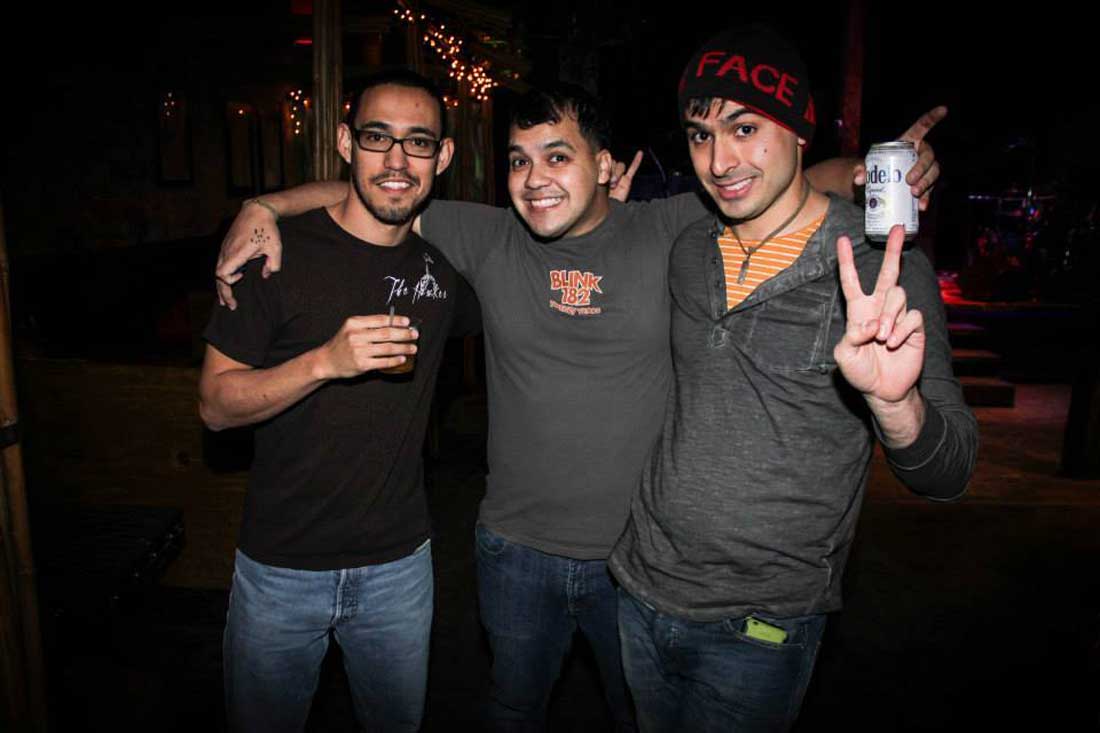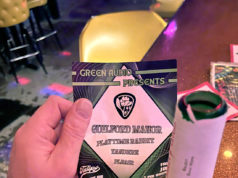When Jonathan Villalobos, lead guitarist and vocalist for Fuera D Servicio, enlisted in the U.S. Marines eight years ago, he never imaged it would be the start of a Latin-flavored punk-rock odyssey. The trio’s nucleus formed when he met drummer and fellow Marine Esteban Juarez while stationed in Japan in 2006. Their first performance together was an impromptu mariachi concert. Neither was particularly jazzed about the style of music, but since Villalobos (clarinet) and Juarez (trumpet) had high-school band experience, they were corralled into the project.
“The locals didn’t quite know what to make of it,” Juarez recalled.
Japan isn’t exactly a hotbed for Mexican folk music, but rock is incredibly popular, so Villalobos, who’d been playing guitar since his childhood in Monterrey, Mexico, began spending his free time writing rock songs. Just as he was ready to start his own loud, heavy band, he and Juarez were sent to Fort Worth’s Naval Air Station Joint Reserve Base.
“It was just dumb luck,” said Juarez, who grew up south of Dallas.
Taking advantage of their new deployment, Villalobos and Juarez began regularly rehearsing in a studio on base, and their tastes quickly turned to unhyphenated punk. Eventually realizing they needed a bassist, they placed an ad online.
“We got one reply,” Villalobos said with a laugh. “Fortunately, it was Jorge.”
Fort Worth’s Jorge Armenta, who’s originally from Hermosillo, Mexico, admits he was green. “I wasn’t part of any professional group then, but I really wanted to be in one,” he said.
Armenta was apprehensive about their first meeting, but the three clicked. The fact that Villalobos and Juarez shared his love of soccer and beer didn’t hurt, he said.
FDS’ sound is bright and aggressive, full of drum barrages and driving, palpitating bass lines, with lyrics about “everyday experiences,” Villalobos said. The band, whose name loosely translates to “Out of Service,” is one of only a handful of Spanish-language punk outfits in the Fort.
“We call it ‘Spanish alternative punk rock,’ ” Villalobos said. “We have a mix of native Spanish and English speakers in our audiences. Many of them don’t understand what we’re saying, but they still connect with the music. It’s kinda like when I was a kid growing up in Mexico listening to Metallica and other American bands. We didn’t understand what they were saying, but we loved the music.”
Juarez said he doesn’t dwell on FDS’ Spanish-language aspect, but, for better or worse, it often defines the band.
“It’s a small genre, so that sometimes makes it harder to book gigs,” he said, “but after concerts, we often hear people say they appreciate what we do, that it’s refreshing.”
The songwriting process usually starts with Villalobos, who brings riffs and melodies to the rhythm section for refining or sometimes complete editing. He calls it “Wikipedia songwriting,” meaning it’s a community effort.
FDS has been gigging steadily across North Texas for the past couple of years. Villalobos and company’s most colorful show, they said, was at a Day of the Dead festival in Dallas, where they played in a ring right after a Mexican wrestling match.
The FDS guys said they’re looking forward to their mainstream Fort Worth debut, at Lola’s Saloon in June.
“We’ve been working for years to get these kinds of opportunities,” Juarez said.
The band plans to release its debut album later this year, with Villalobos doing all of the recording and production work at his home studio. The guys have already written more than a dozen tracks, some traditionally punkier than others. “Our sound keeps evolving,” Armenta said. “Sometimes our songs even break out into ska rhythms during shows.”
He said punk is a fluid genre that can incorporate myriad influences as long as it maintains its basic roots of questioning authority and giving voice to the disenfranchised.
“Some people think punk rock is dead,” he said. “We say it’s bigger than ever.”












